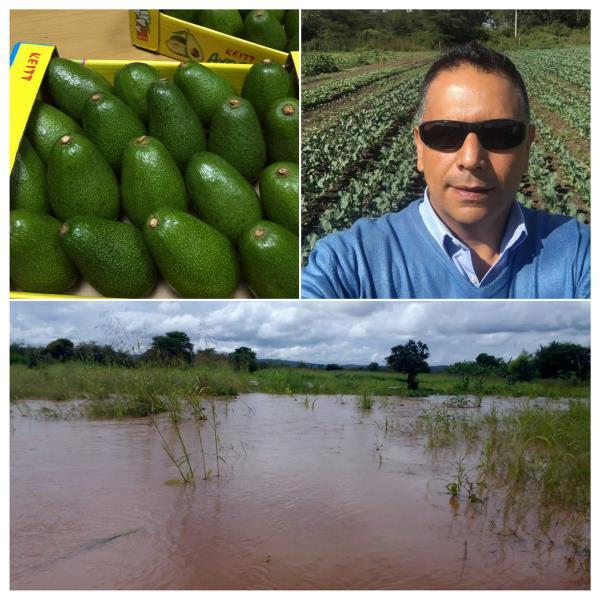How East Africa Fruit exports is coping with pest and weather challenges?
This season East African crops are confronted with high challenges including effects of desert locust, fall armyworm, fruit fly, heavy rains and Covid-19.
Locust Invasion
The desert locust is a winged insect that travels in swarms, consuming almost every leaf of green vegetation in its wake. These insects making a path of destruction at least to eight countries of South Africa: Kenya, Uganda, South Sudan, Ethiopia, Somalia, Eritrea, Djibouti and Sudan. The impact is felt especially on the northern region and affects local consumed crops as: maize, sorghum, millet, grains… It is a national food security issue.
As Mr Dipesh Devraj, Operations & Commercial Director, Keitt Exporters Ltd, (Kenya) explains this is not affecting much exported produce:
“We have this locust troubles for 3 or 4 months now. It is a natural calamity occurrences and it is makes a serious problem as these winged insects can eat their own weight every day. However, insect has small damage on export crops as much of them are planted on the central rift valley zones to the western regions. This is affecting more the agro-products sold on domestic market.”
“Fall armyworm is a real problem”
Fall armyworm (FAW) is one of the most important maize pests that causes the highest monetary losses to agriculture. This makes more of a concern than the locusts because the effect has been wide spread and this hits export crops hard.
Mr Dipesh Devraj goes on:
“This season again, we had seen heavy rains in Kenya, the worst in the last 10 years, especially during last 2 months. This has been a reason for pest high development. Farmers have to cope with fall armyworms this year more than ever. We have prepared our farmers with latest techniques and equipment as using pheromone lures to trap and eliminate male armyworms with the intention of disrupting mating cycles.”
“In addition, pest control methods that can kill FAW are very expensive for farmers, so sometimes it is highly increases production costs.”
Integrated Pest Management strategy
Fruit fly is one of the most destructive pests of avocado in Africa. Since Avocadoes are the major crop for Keitt Exporters Ltd., the company has heavily invested both in pheromone traps and in Integrated pest management strategy for all their farmers and farms.
Consequences of heavy rains
Heavy seasonal rains across East Africa have resulted in widespread floods that caused a drastic damage on vegetable crops such as beans, peas & broccoli. This put production costs up, as many lots have been rejected at the farms.
Mr Dipesh Devraj adds:
“Heavy rains have also slowered avocadoes flowering, and can cause a smaller size of avocadoes. In our company, we are working closely with our agronomist and quality managers to delay as much as possible the harvest. This needs a great expertise and cautious approach. So far, in Kenya, the exporting volumes of avocadoes have been down from 25%. We are staying positive, and expect a bounce back in next weeks and months. Our season is long until November, we stay confident.”
Effects of COVID-19
Logistics worldwide has been affected by the pandemic, and East Africa is no exception. Main issues here are the “un certainty” as many flights cancelled with minimum options and this leading to exporter’s higher freight rates paying for sending kit. This means operating costs go higher. Labor costs go higher due to harvesting timings effected on farms and also costs of pack house rise as companies have to do rework of kit on the same day because flights are still uncertain and some cancel at the last minute.
Keitt Exporters Ltd is one of the main fruit and vegetable exporters in Kenya for more than 10 years now, Global Gap certified. It also operates its own packinghouse, distribution and marketing resources.
Contact: Keitt Exporters Ltd
Mr Dipesh Devraj, Operations & Commercial Director
Tel: +254 722 204 391, email: dipesh@keitt.co.ke
Sources: qz.com; sciencedirect.com; aphis.usda.gov; africamuseum.be; public.wmo.int; tralac.org





